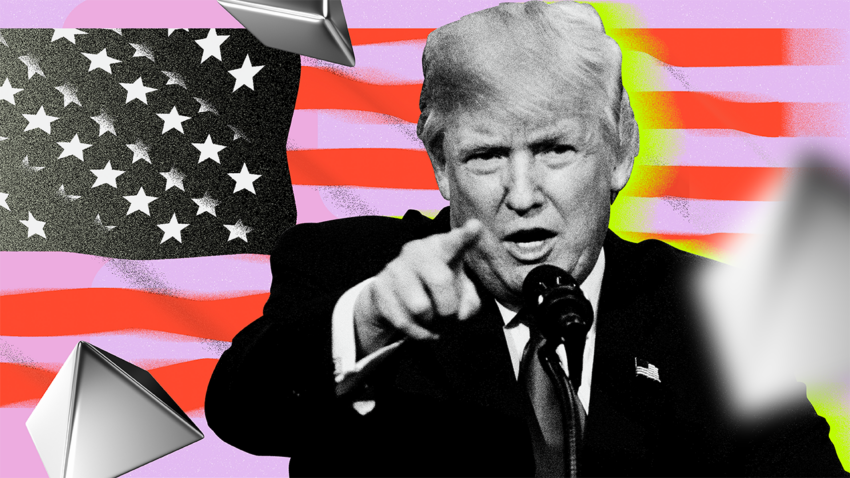On the campaign trail, former President Donald Trump emphatically voiced his opposition to the creation of a central bank-issued CBDC digital dollar.
In a stirring declaration, Trump stated, “As your president, I will never allow the creation of a central bank digital currency.”
Trump Speaks Out Against a Digital Dollar CBDC in the US
This statement aligns with his consistent stance against what he perceives as government overreach. Trump elaborated,
“Such a currency would give a federal government — our federal government — absolute control over your money. They could take your money and you wouldn’t even know it’s gone.”
Trump’s comments have fueled an already fiery debate surrounding central bank digital currencies (CBDCs). The proposed US Federal Reserve digital dollar has drawn significant scrutiny, particularly from conservatives.
Critics fear a CBDC could allow extensive government monitoring of finances and even lead to product bans. Conversely, proponents advocate for the efficiency and anti-fraud benefits of digital transactions.
The Federal Reserve, under the guidance of Vice Chair for Supervision Michael Barr, maintains a cautious approach toward the potential digital dollar. Barr emphasized the Fed’s position, stating,
“We are a long way from any decision on whether it would issue its own digital currency.”
He reiterated the necessity for explicit support from both the president and Congress before proceeding with such a monumental initiative.
Read more: Digital Rupee (e-Rupee): A Comprehensive Guide to India’s CBDC
House Republicans Pursue a US CBDC Ban
In alignment with Trump’s stance, House Republicans, spearheaded by Majority Whip Tom Emmer, are actively pursuing legislative efforts to ban CBDCs. Their recent bill encompasses a broader scope, targeting “intermediated CBDCs” that would primarily serve financial institutions rather than the general public.
This move signifies the Republican party’s steadfast opposition to CBDCs in any form. Emmer’s bill, however, faces an uphill battle for approval, given the current Democratic control of the White House and Senate.
As the debate rages on, the global CBDC sector continues to mature. The Atlantic Council notes most nations are either exploring or implementing CBDCs, receiving mixed public responses.

This trend underlines digital currencies’ growing role globally amid US uncertainty on the matter.
Overall, Trump’s campaign trail statements add a notable dimension to the ongoing discourse on CBDCs. His vehement opposition is echoed by key Republican figures. This underscores a broader conversation about financial privacy, government surveillance, and the future of currency in the digital age.

